Is Sinn Féin changing its policy on a border poll?
- Published
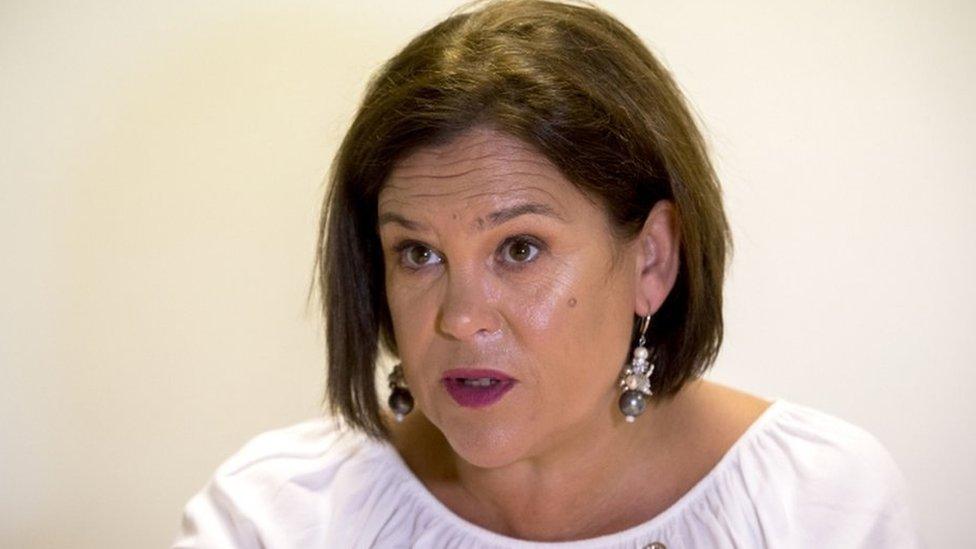
The Sinn Féin leader still wants to see a referendum within five years
Sinn Féin's Mary Lou McDonald appeared to indicate a softening in party policy on Monday when she said a border poll should not be held while uncertainty around Brexit remains.
The party leader's comments contrast with previous Sinn Féin assertions that a referendum on a United Ireland cannot come soon enough.
Back in 2016, in the immediate aftermath of the UK-wide Brexit referendum, Martin McGuinness argued that the case for a border poll had been strengthened.
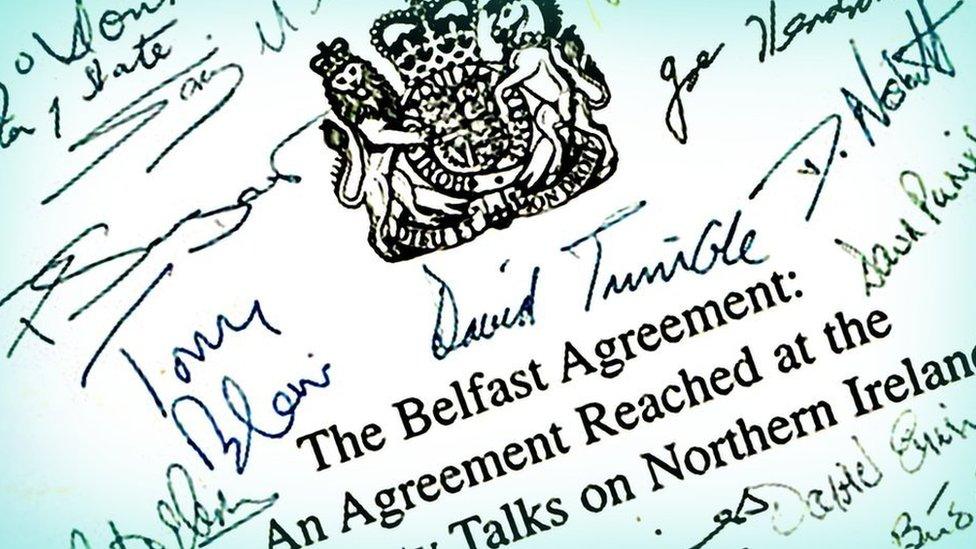
The Good Friday Agreement allows for the holding of a border poll under certain circumstances
In May this year, when Prime Minister Theresa May was reported to be doubtful about the chances of unionists winning a border poll, Michelle O'Neill criticised the prime minister for "conceding that the Good Friday Agreement threshold for triggering a unity poll has been met" but not being prepared "to allow the people of Ireland, north and south, to exercise their democratic right".
Earlier this month, former Sinn Féin president Gerry Adams took the Irish prime minister to task for suggesting an early border poll would be divisive and a bad idea.
"Cherry pick"
Addressing a republican commemoration in County Armagh, Mr Adams said he rejected Taoiseach Leo Varadkar's suggestion that a referendum on Irish unity is not desirable at this time.
"He has a duty to uphold the Good Friday Agreement," he said.
"He cannot cherry-pick it. So we will continue to look for a referendum and we will do our utmost to win that convincingly."
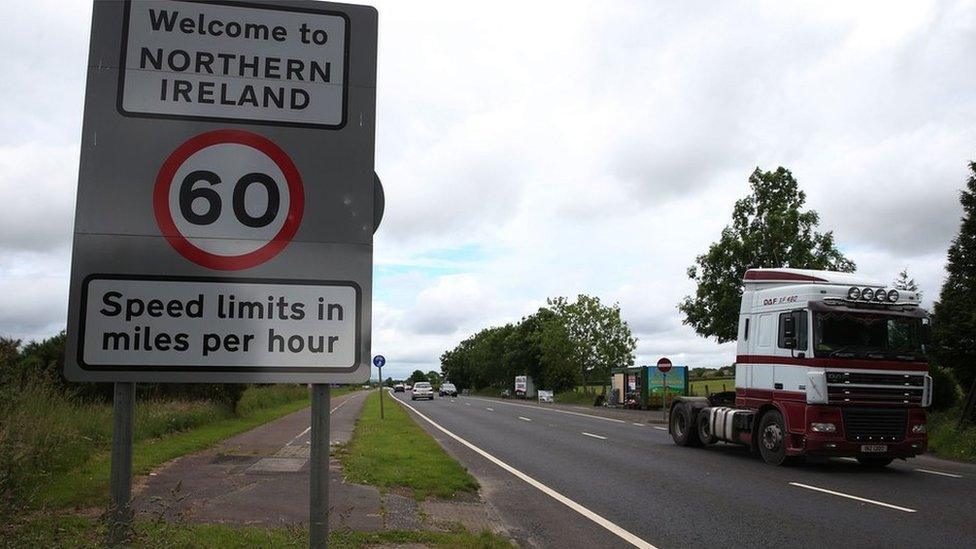
The border between Northern Ireland and the Republic of Ireland is a key issue for Brexit talks
On the face of it, Ms McDonald's latest comments appear closer to Mr Varadkar's approach than Mr Adams.
She told the Press Association (PA) that the border poll question should be put to one side until the "dangers" posed by Brexit are mitigated, adding that it is her "strong preference, that we have sequencing that firstly delivers a level of economic and social certainty, in as much we can be certain, and stability and from that base we then continue the conversation about Irish unity".
Certainly the SDLP, who have previously argued for a more gradual approach to a border poll, saw this as a shift, with their leader Colum Eastwood welcoming the move as a "sensible change - we've been saying exactly that for two years".
Poll within five years?
But how long does Ms McDonald want to wait for a border poll?
In her PA interview, she repeated that Sinn Féin remains in favour of a border poll within the next five years.
She was keen to underline this point when questioned on RTÉ radio, saying she had intended to emphasise that a chaotic Brexit "would not be ideal mood music for a border poll".
To complement this change of gear, Sinn Féin then put out a statement in Ms McDonald's name headlined "Tory Brexit will not delay Irish Unity Referendum".
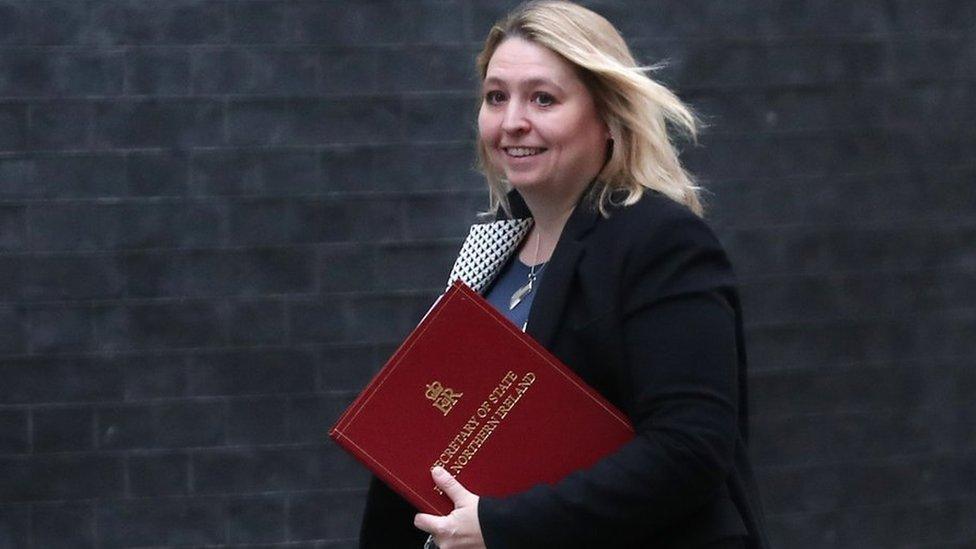
NI Secretary Karen Bradley calls the shots over whether a border poll will be called
Whatever Sinn Féin says on the timing of a border poll, it is worth bearing in mind that the person who has the most power in determining its timing is the Northern Ireland secretary.
Despite the reported uncertainty on the part of the prime minister back in May, Karen Bradley has insisted on several occasions that she does not believe the threshold for triggering a border poll has been met.
Mountain of evidence
Given the Conservatives' reliance on the DUP at Westminster, it is likely they would need a mountain of evidence (presumably in terms of opinion polls and/or election results) before being convinced the time is right.
One of the ironies of Mary Lou McDonald's latest remarks is that some believe that the "chaotic Brexit" she does not regard as a healthy backdrop for a border poll might increase nationalism's chance of victory.
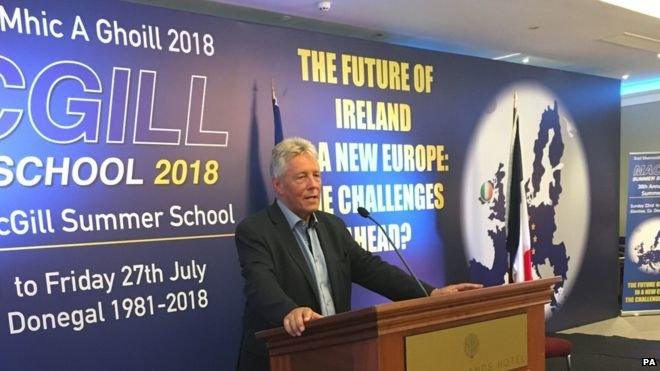
Peter Robinson has been criticised over remarks he made at the MacGill Summer School
The focus on Ms McDonald's comments comes straight after an internal unionist disagreement between Peter Robinson and Sammy Wilson over whether unionists should make contingency plans for a united Ireland.
The truth is that all sorts of local politicians have adopted, shall we say, rather inconsistent lines over the years about the rights and wrongs of holding a border poll.
So let's finish with a quiz.
Who said?
"I will be insisting on a border poll to answer once and for all the border question."
"For me the context around the border poll needs to be very different from what we have today."
"Let there be, next year, on the same day as the assembly elections, a border poll. Let's put the issue to bed for another generation."
"We may just call your bluff on this one Mitchel, so be very careful what you wish for."
Scroll down to see the answers



















Answers:
The late DUP Leader Ian Paisley before meeting Tony Blair in 1997
Irish Foreign Minister Simon Coveney in 2017
The former first minister and UUP leader David Trimble in 2002.
DUP leader Arlene Foster to Sinn Féin's Mitchel McLaughlin on BBC Radio Ulster 2013
- Published29 July 2018
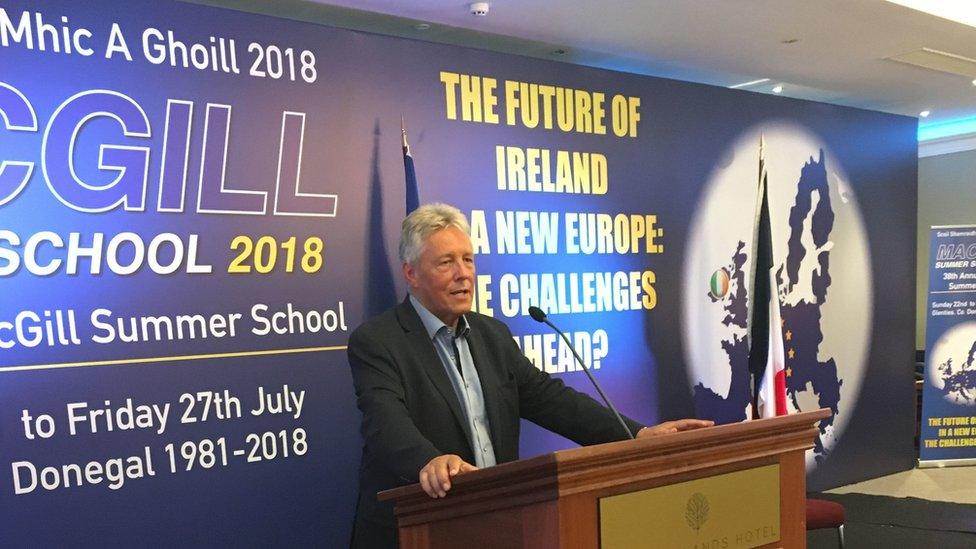
- Published31 July 2018
